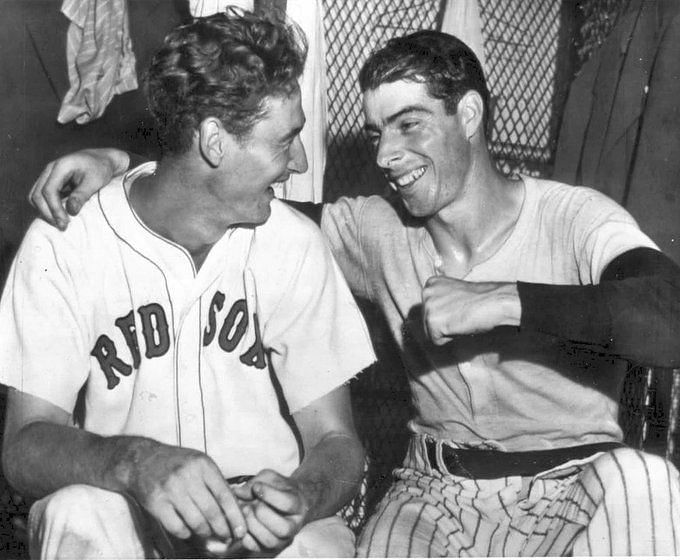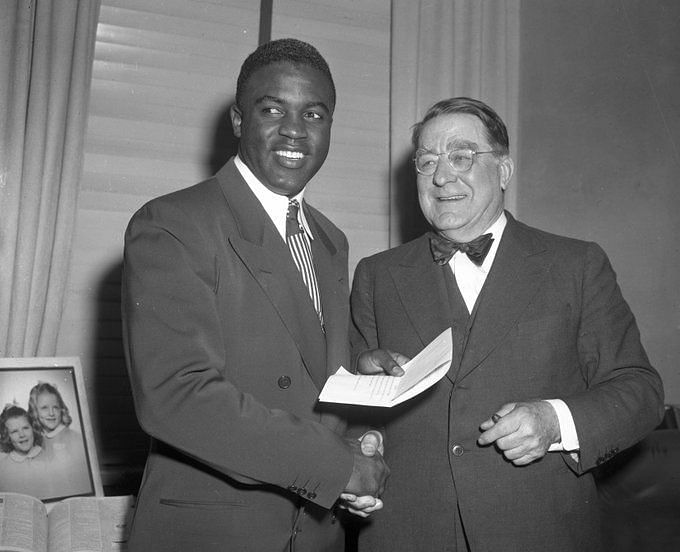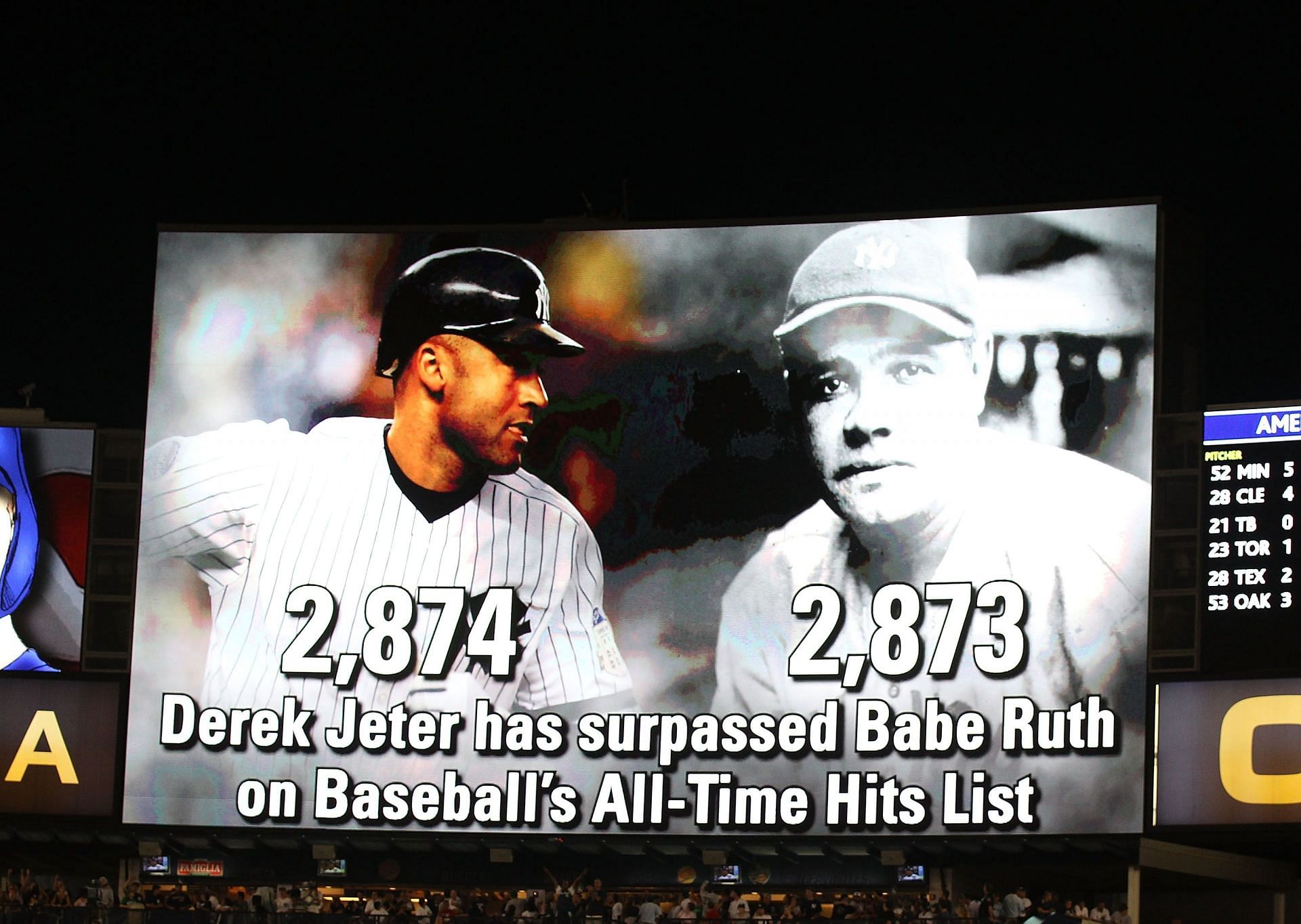
The 3 greatest MLB moments that changed the game forever
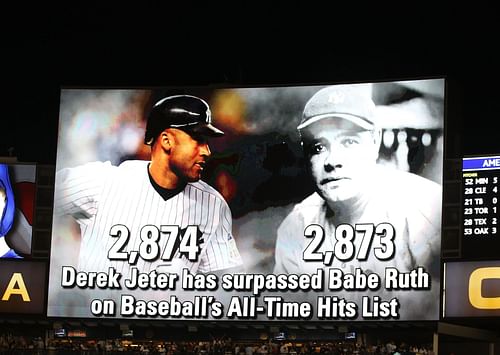
The three greatest moments in MLB history did more than change the game, they changed the world. That's why baseball is known as America's greatest pastime.
Some of the most defining performances and moments in world history derive from MLB legends who are etched forever in the history books and American culture. Here are the three greatest moments in major league baseball that changed the game, and, in many cases, the world forever.
MLB's most defining moments that changed baseball forever
#3 Babe Ruth switches from pitcher to hitter
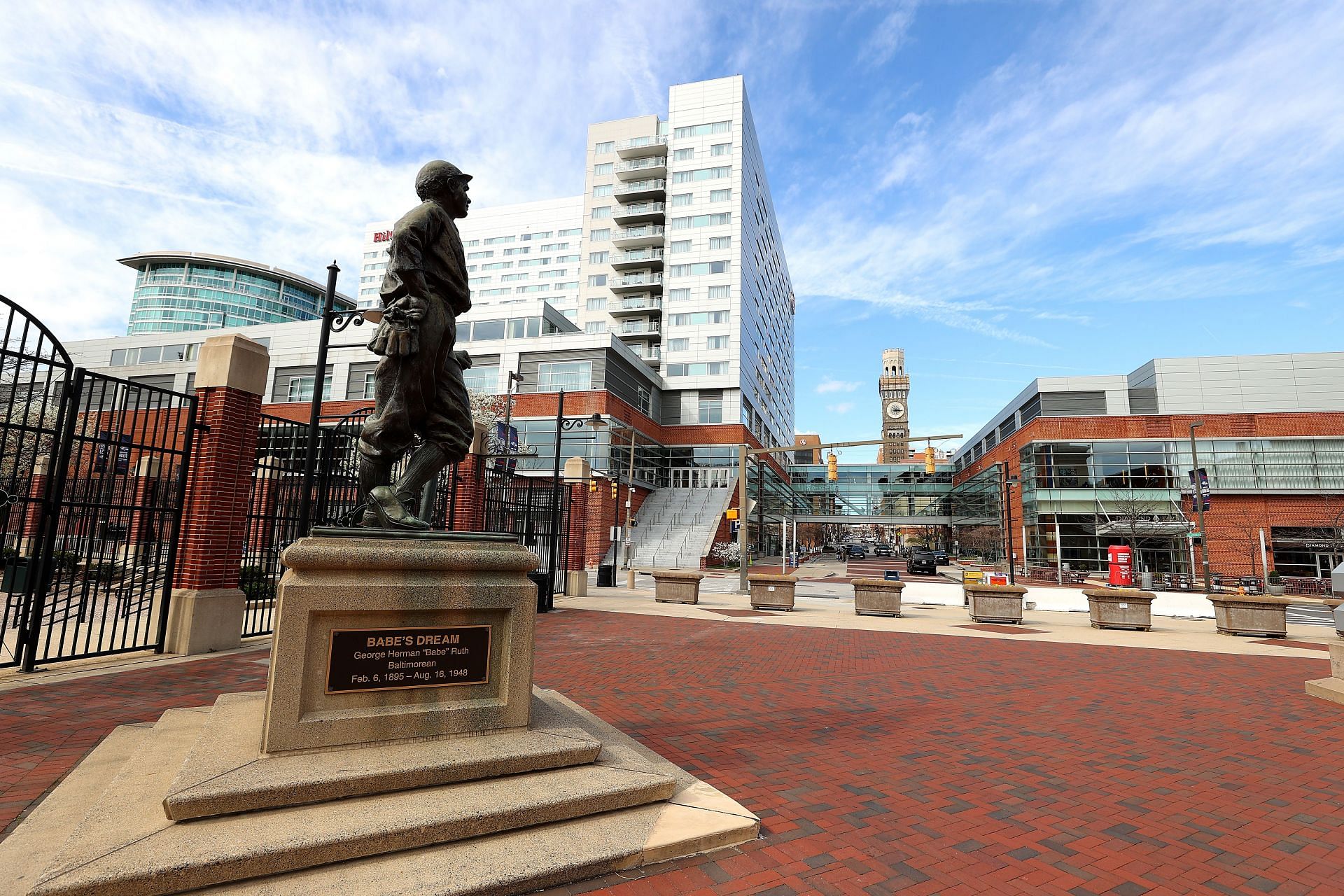
With a lifetime ERA of 2.28, George Herman "Babe" Ruth was no slouch at his original position as a pitcher. But when the draft of World War 1 produced a shortage of position players, Ruth's bat was forced into the Yankees' everyday lineup. After hitting 11 home runs in 95 games, he never looked back.
In a dead-ball era where home runs were a scarce occurrence, Ruth hit 40+ home run in 11 seasons, ending his MLB career with a total of 714 homers. His career performances changed how the world viewed baseball and home runs forever. If Ruth hadn't switched from pitcher to slugger, one of the greatest hitters of all-time would never have been.
#2 The 1941 season
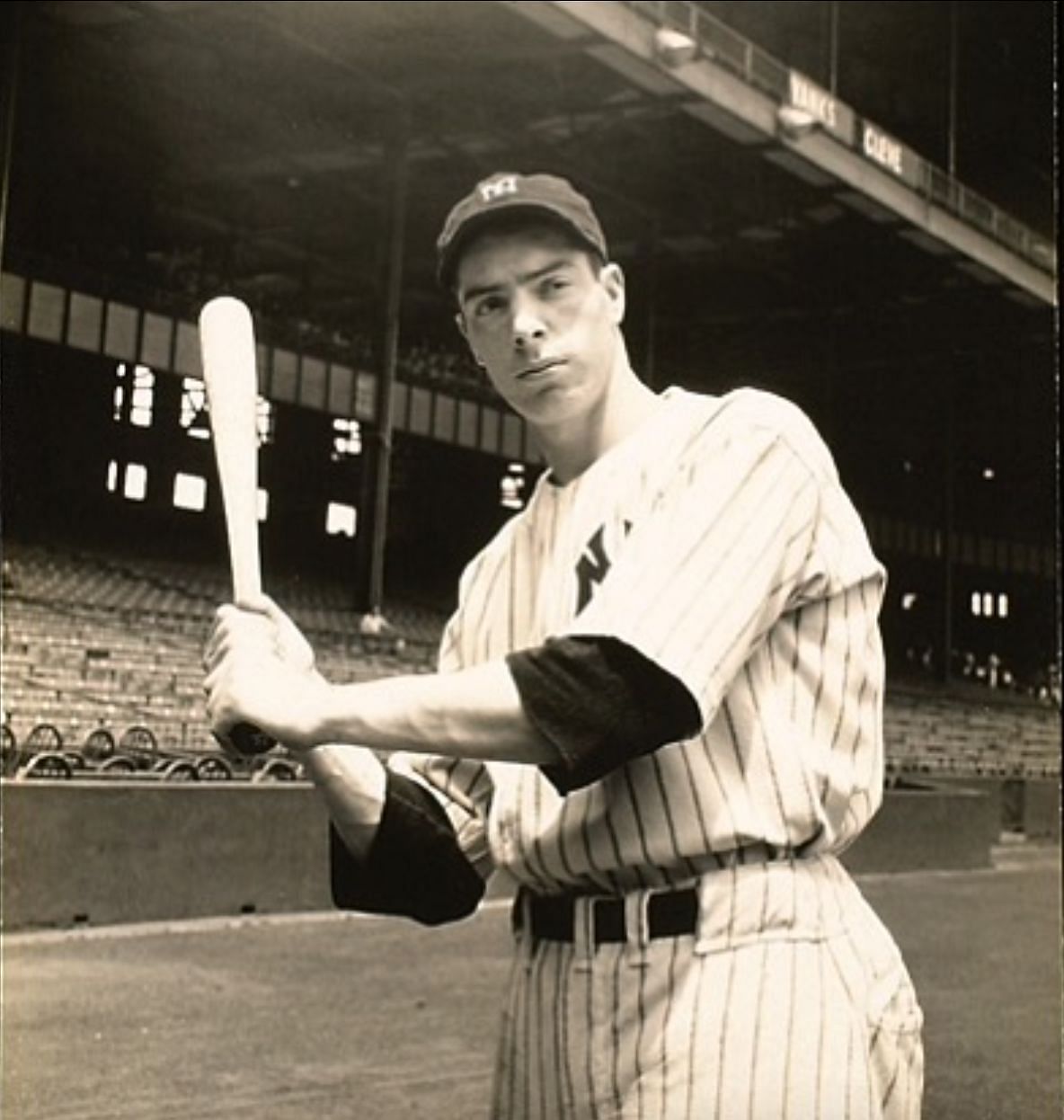
The 1941 MLB season may have been the most incredible season in sports history. That season, sports fans around the globe witnessed two of baseball's greatest milestones simultaneously, records that have yet to be replicated. In 1941, Ted Williams posted a .400 batting average with the Boston Red Sox, and Joe DiMaggio held a 56-game hitting streak for the New York Yankees.
"The last baseball palyer to hit .400 didn't even win the #MVP because the longest hitting streak in MLB history happened the same year." - Keep on Playing
It's not just the coinciding records that made the 1941 season a year that changed the sport. Add the height of the perils of World War 2 to the mix, and you have a sports year that America and the world desparately needed.
In an age where much of the international social climate was in turmoil, baseball provided an escape from a dark time. In many respects, the 1941 season etched baseball in the hearts of American families for generations to come. Furthermore, 1941 was a year that cemented Major League Baseball forever as America's greatest pastime.
#1 Jackie Robinson becomes first African-American to sign an MLB contract
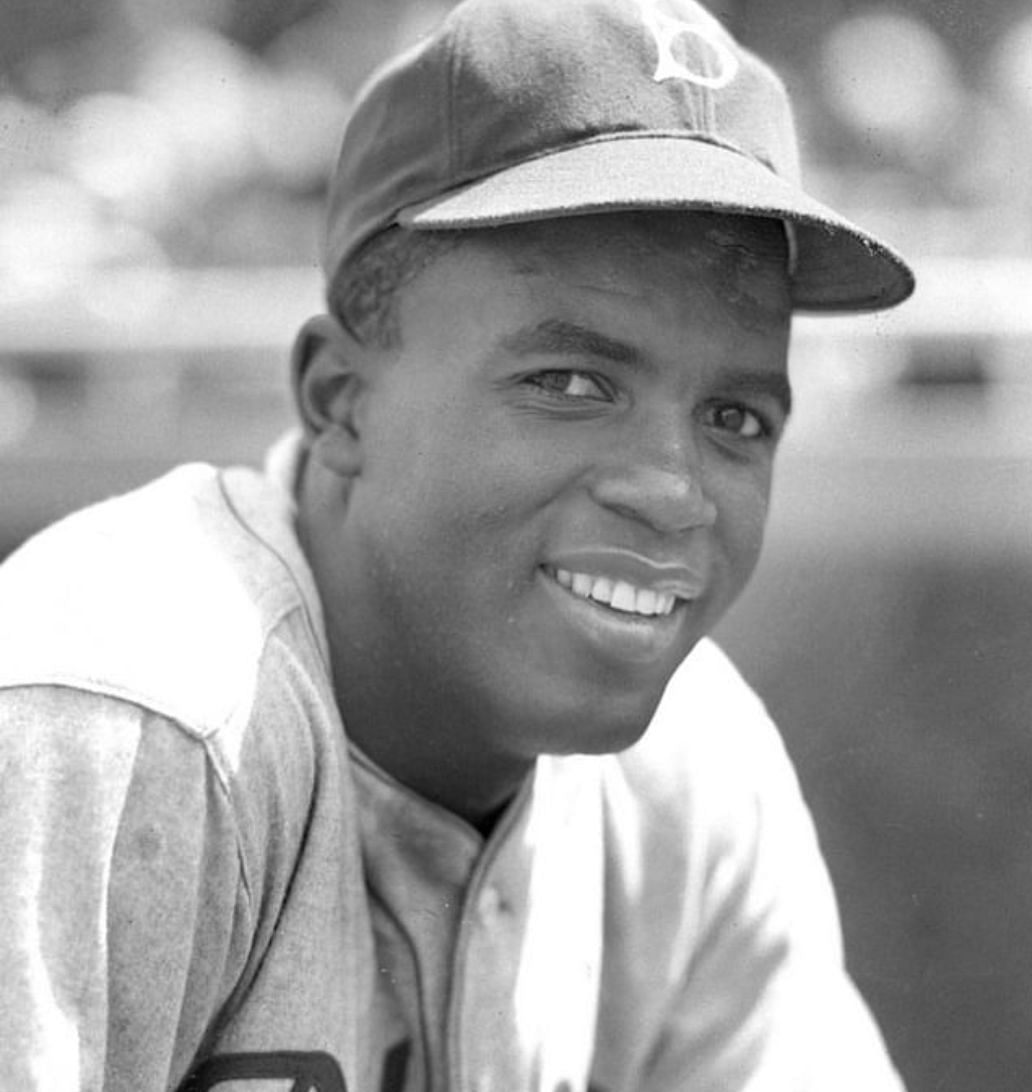
The day Jackie Robinson signed a major league contract on April 10, 1947, was the most important day in all of sports history. By breaking the color barrier, Jackie paved the way for generations to follow in his footsteps. Beyond that, it changed the social atmosphere and set the necessary standard on the global spectrum in society and sports.
"Jackie Robinson became the 1st African-American player to sign a Major League contract." - Fox Sports: MLB
This signing was and is without a doubt the most important instance in sports history for the abolition of racial bias. It wasn't the event that made Robinson special; it was the man himself. Though he garnered great support on the whole, his opposition was much louder. Under more scrutiny and observation than the color of his skin was his response to the intense spotlight.
Robinson did not aggressively protest. He did not lash out and fight as his opposers would have loved. Instead, he maintained a humble and classy demeanor in the face of racial adversity that was hard to oppose. His demeanor exhibited not weakness, but strength worthy of the greatest.
As Brooklyn Dodgers owner Branch Rickey put it, "There was never a man in the game who could put mind and muscle together quicker and with better judgment than Robinson."
Modern Society could certainly learn a lesson or two in unity from the example and testimony of the great Jackie Robinson.
